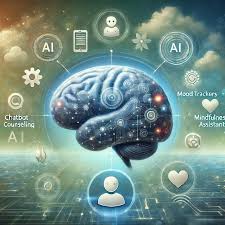In the relentless pursuit of self-improvement, a new and intriguing ally has emerged: the AI-powered personal coach. Residing conveniently in our pockets, these digital mentors promise a future where guidance for our personal and professional lives is as accessible as checking the weather. But as we stand on the cusp of this technological revolution in personal development, a crucial question arises: can an algorithm truly understand the complexities of the human experience and offer meaningful guidance?
The Allure of the Digital Mentor: Why AI Coaching is Gaining Traction
The appeal of an AI life coach is undeniable, primarily because it dismantles the traditional barriers to personal development. For many, these platforms are democratizing self-improvement in several key ways:
Unprecedented Accessibility & Affordability: Unlike human coaches who come with high costs and scheduling challenges, AI platforms offer 24/7 support for a fraction of the price. This continuous access means guidance is available at the precise moment a user needs it.
Personalized, Data-Driven Structure: Apps like Rocky.ai and Marlee use natural language processing (NLP) and machine learning to engage users in daily conversations. They help set goals, track habits, and provide personalized feedback, creating a clear, data-informed roadmap to success.
Anonymity and Psychological Safety: For individuals who feel intimidated or vulnerable sharing their aspirations and struggles, the anonymity of an AI coach provides a judgment-free zone. This can encourage more honest self-reflection.
Scalability for Organizations: In the corporate world, platforms like BetterUp and CoachHub use AI to deliver coaching at scale. They can identify patterns in employee behavior and suggest targeted interventions, fostering a widespread culture of continuous improvement.
The Ghost in the Machine: The Inherent Limitations of AI
Despite its impressive capabilities, the very nature of artificial intelligence presents its most significant limitations. The digital brain, while powerful, lacks the heart of human interaction.
Absence of Genuine Empathy: An AI can be programmed to recognize and respond to emotional keywords, but it cannot feel genuine empathy. It lacks the nuanced understanding and shared emotional experience that forms the bedrock of a trusting human coaching relationship.
Inability to Navigate Nuance: A human coach can read between the lines, perceiving subtle shifts in tone and body language. They draw upon a wealth of lived experience to offer insights that an algorithm, confined to its dataset, simply cannot replicate when navigating the messy, unpredictable terrain of life.
Dependence on Pre-existing Data: AI coaches are only as good as the data they are trained on. They cannot offer truly original or “out-of-the-box” wisdom that often comes from human intuition and creativity.
From Theory to Practice: Real-World User Experiences
User testimonials often reflect this clear dichotomy. The effectiveness of an AI coach appears to be highly dependent on the user’s goals.
Success with Concrete Goals: Many users praise the convenience and effectiveness of AI for specific, well-defined objectives. One user noted, “It’s been fantastic for keeping me accountable with my morning routine and fitness goals.” For task management and habit formation, the structured approach is highly effective.
Struggles with Complex Issues: Conversely, when faced with deeper life challenges, the limitations become apparent. “When I was dealing with a complex career decision,” another user shared, “the AI’s responses felt generic and lacked the warmth and personal insight I really needed.”
The Ethical Tightrope: Navigating Privacy, Bias, and Trust
The rise of AI coaching ushers in a host of critical ethical considerations that users and developers must navigate carefully.
Data Privacy & Security: Users are encouraged to share their deepest insecurities and loftiest dreams. This highly sensitive data requires robust protection to prevent it from being exploited or mishandled.
Algorithmic Bias: If an AI is trained on a dataset reflecting societal biases (related to gender, race, or culture), it may inadvertently perpetuate and even amplify them in its coaching, offering advice that is not universally applicable or equitable.
The Need for Transparency: For users to trust their digital mentors, there must be transparency in how the AI models are designed, what data they are trained on, and how they generate their advice.
The Future of Coaching: A Human-AI Partnership
The future of personal coaching likely lies not in a binary choice between human and AI, but in a synergistic partnership. This hybrid model would leverage the unique strengths of both. AI can serve as a powerful tool for initial self-assessment, goal tracking, and maintaining daily momentum. It can handle the administrative and data-oriented aspects of personal development, freeing up human coaches to focus on what they do best: providing deep, empathetic, and intuitive guidance for life’s more complex challenges.
Conclusion: A Powerful New Tool, Not a Panacea
The AI-powered personal coach is more than just a fleeting trend; it represents a fundamental shift in how we access personal growth. These “pocket life-coaches” offer an invaluable starting point for anyone looking to improve their lives. However, it is essential to approach this technology with a clear-eyed view of its limitations. While AI can provide structure and support, the quintessentially human elements of empathy, wisdom, and genuine connection remain the irreplaceable cornerstones of transformative coaching. The pocket life-coach is a powerful new tool in our self-improvement arsenal, but for now, the human heart remains its most potent guide.


